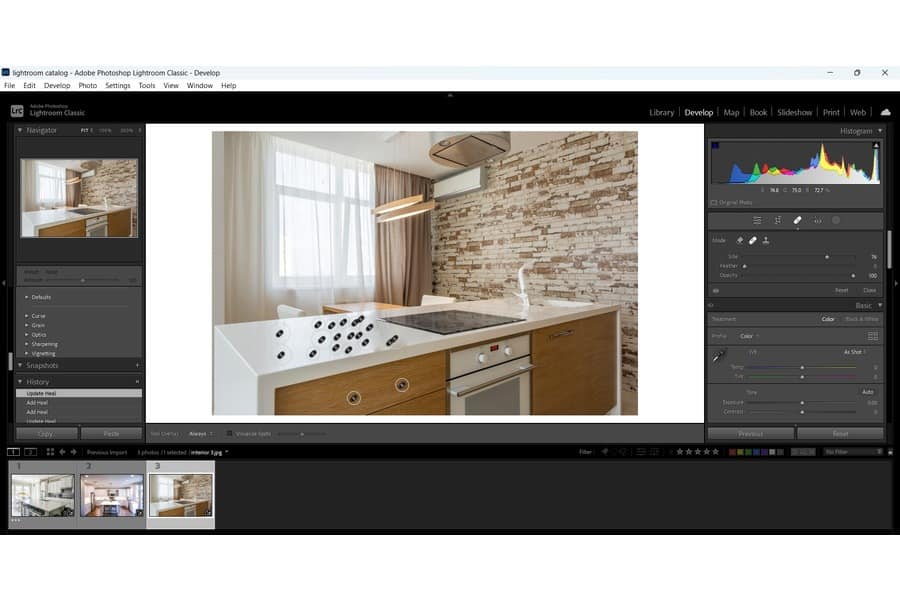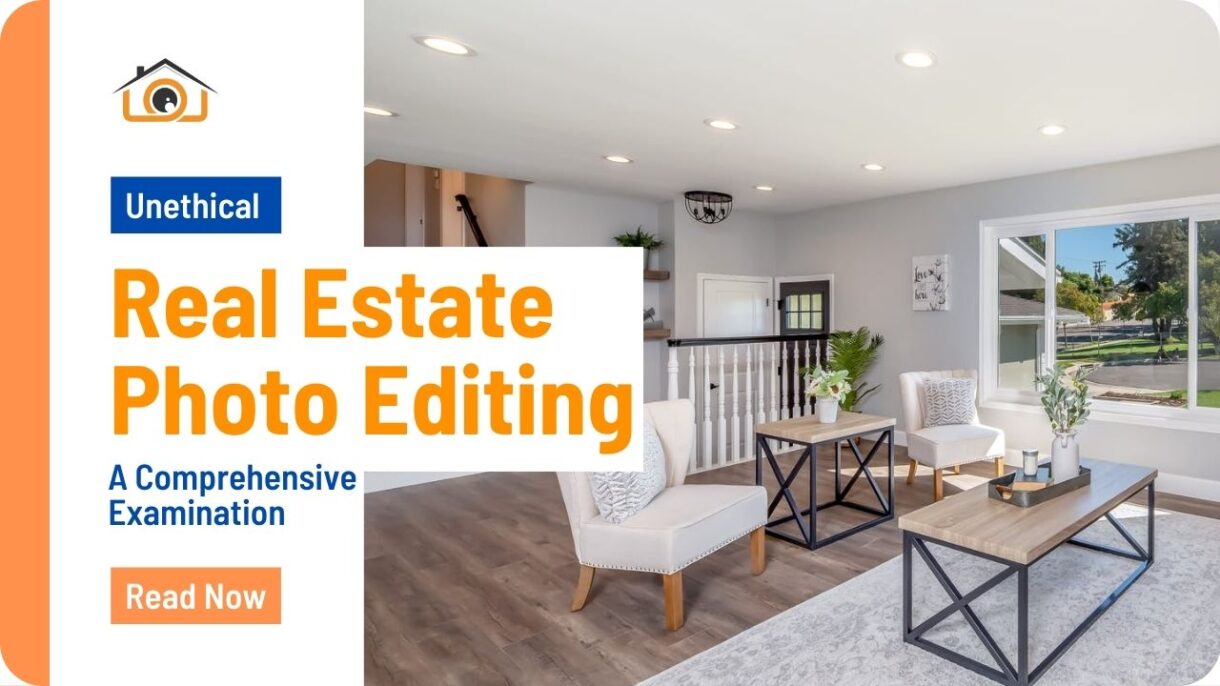Unethical Real Estate Photo Editing: A Comprehensive Examination
In modern day digital age, real estate images plays a pivotal function in attracting capacity customers and showcasing homes in their best light. However, the manner does not quit with taking the best shot. Real estate photographers regularly depend on photo modifying to enhance the pics, however this exercise is not without ethical considerations. In this giant article, we will delve deep into the ethics of photograph editing inside the real estate enterprise, explore unethical real estate photo editing practices, and discuss the excellent line among moral and unethical editing. Moreover, we’ll provide insights into a way to edit real estate photos ethically and take a look at the impact of unethical real estate photo editing at the enterprise.
Table of Contents
What are the Ethics of Photo Editing?
Before we dive into the arena of real estate photography, it’s essential to apprehend the broader concept of ethics in photograph editing. Ethical photograph modifying encompasses standards of honesty, transparency, and accuracy. It entails making sure that the edited photo as it should be represents the concern even as enhancing its visual appeal. In numerous industries, consisting of journalism, advertising, and real estate, moral image enhancing is important for keeping consider and credibility.
Unethical Real Estate Photo Editing: A Growing Concern
In current years, the real estate industry has witnessed a surge in the use of photograph editing strategies that, even as improving the visual appeal of residences, boost moral concerns. This has given upward thrust to a important query: do real estate photographers edit photos, and if so, to what extent?

Do Real Estate Photographers Edit Photos?
real estate photographers often function the primary factor of contact between capacity consumers and houses available on the market. Their responsibility extends beyond capturing property photos; additionally they use picture modifying to present these properties in the great possible mild. Common enhancing practices in real estate photography consist of adjusting brightness and evaluation, straightening lines, putting off minor imperfections, and enhancing colours.
The Art of Ethical Real Estate Photo Editing
Editing is not inherently unethical; it’s a tool to enhance the visual appeal of a property. Properly edited photos can bring out the best features of a space and create a more inviting atmosphere. For instance, brightening dimly lit rooms can make them appear more spacious and appealing. But the challenge lies in maintaining transparency throughout the process.
Is There a Wrong Way to Edit Photos?
Indeed, there is a wrong way to edit photos, especially in the context of real estate. Unethical editing practices can deceive potential buyers, leading to disappointment when they visit the property in person. Some common unethical practices include:
- Misrepresenting Space: One of the most unethical practices is making a space look more spacious than it is through extreme wide-angle lens distortion or heavy editing. This can create unrealistic expectations and ultimately harm the reputation of the real estate agent or photographer.
- Hiding Flaws: Editing out significant flaws, such as structural damage or neighboring eyesores, is a deceptive practice that can lead to legal issues and damage trust. Concealing problems rather than addressing them is not a responsible approach.
- Over-Enhancing Colors: While enhancing colors can make a property more visually appealing, excessive saturation or color alterations that do not represent reality are unethical. A turquoise lawn or neon pink sky might look striking but can mislead potential buyers.
- Adding Objects: Inserting objects that do not exist in reality, such as a pool or luxury car, into a property’s image is a blatant form of deception. Such practices can lead to legal repercussions and severe damage to reputation.

How Do You Edit Good Real Estate Photos Ethically?
To edit real estate photos ethically and responsibly, it’s crucial to follow a set of guidelines:
- Maintain Realism: Keep the image’s representation as close to reality as possible. Avoid extreme alterations that mislead viewers.
- Full Disclosure: If there are significant flaws or imperfections, disclose them to potential buyers rather than attempting to hide them through editing.
- Consistency: Maintain consistency in lighting and color balance throughout the photo set to ensure that viewers get an accurate sense of the property.
- Professionalism: Hire experienced photographers and editors who understand the ethical standards of the industry.
- Communication: Maintain open communication with real estate agents and sellers to ensure everyone is on the same page regarding the editing process.
- Legal Compliance: Ensure that your editing practices comply with legal standards and regulations governing real estate advertising.
The Impact of Unethical Editing on the Real Estate Industry
Unethical editing practices can have far-reaching consequences for the real estate industry:
- Erosion of Trust: When potential buyers discover significant discrepancies between edited photos and the real estate, trust is eroded. This can lead to skepticism and reluctance to engage with real estate listings.
- Legal Consequences: Deceptive editing practices can result in legal issues and lawsuits, which can be costly and damaging to individuals and businesses involved.
- Reputation Damage: Real estate agents, photographers, and editing companies that engage in unethical practices risk severe damage to their reputation, which can be challenging to recover from.
- Industry-wide Impact: Widespread unethical editing practices can harm the entire real estate industry’s reputation, making it more difficult for trustworthy professionals to gain the trust of potential buyers.
Conclusion
In the world of real estate photography, ethical real estate photo editing is not an option; it’s a necessity. The practice of enhancing real estate photos should serve the purpose of presenting properties in their best light while maintaining transparency and honesty. Ethical editing practices build trust with potential buyers, protect the reputation of professionals in the field, and ensure the long-term health of the real estate industry.
As industry standards evolve, it’s essential for real estate photographers, agents, and editing companies to adhere to ethical guidelines and prioritize integrity. By doing so, they contribute to a more transparent and trustworthy real estate market, benefitting both buyers and sellers alike.
Additional Resources
For further reading on photo editing ethics in real estate and related topics, consider exploring the following resources:
- National Association of Realtors (NAR) Code of Ethics
- Mastering HDR Interior Photography: Techniques for Stunning Real Estate Images
- Legal Issues in Real Estate Photography
In conclusion, ethical real estate photo editing is a vital component of property marketing, ensuring transparency and credibility in an industry where trust is paramount. By following ethical guidelines, professionals can create a win-win situation for both buyers and sellers, fostering a more trustworthy real estate market.
